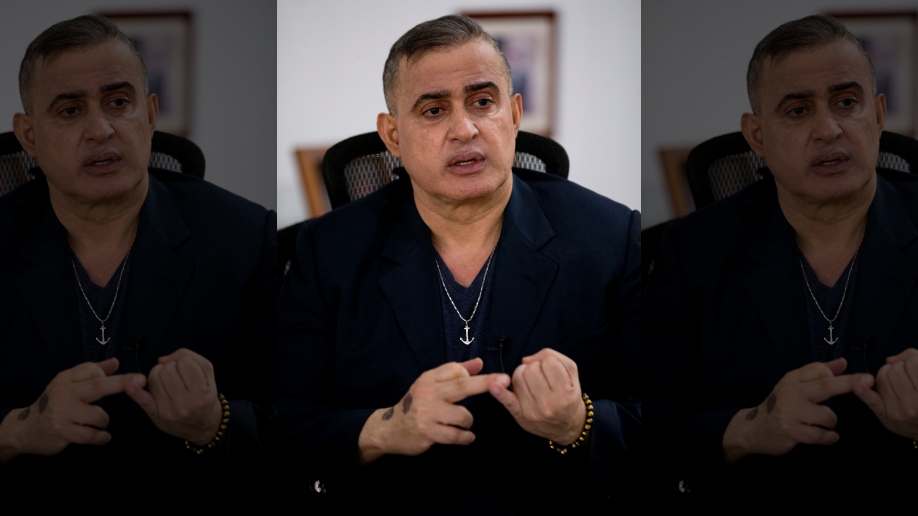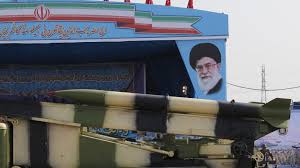Venezuela’s prosecutor rejects calls for independent probe

Venezuela’s chief prosecutor said he is investigating police officers who failed to keep safe an opposition politician who plunged from the 10th floor of a high-security building, even as he rejected calls for an independent probe into the suspicious death.
The death last week of Fernando Alban touched a nerve with many Venezuelans who doubt the government’s account that the Caracas-area councilman took his own life just three days after his surprise arrest at an airport. Alban was returning from a trip to the U.N. General Assembly in New York to galvanize opinion against President Nicolas Maduro’s socialist government.
In an interview, Chief Prosecutor Tarek William Saab downplayed the criticism and suggested that opposition leaders who insist that Alban was thrown from the building or tortured to death could face prosecution themselves.
“Those who say it was a murder haven’t presented any evidence,” he said. “They first have to give names of those who carried out the murder. But nobody has dared to do that because they know making something up would be committing slander.”
He said the autopsy performed on Alban was documented with photographs and the results were shared with Alban’s family and lawyers for them to audit. So far, they haven’t presented any objections, he said.
Saab rejected calls by opposition leaders for an independent probe carried out by international experts to settle conflicting reports over how he died. He said such calls, which have been backed by the United States and other foreign governments, are an attempt to “interfere” in Venezuela’s justice system.
“We aren’t going to delegate to any foreign government the ownership of our criminal justice system,” Saab said. “That’s abusive and disrespectful.”
Still, he recognized that no prisoner should be able to commit suicide while in state custody and said those responsible for failing to protect him would be probed for negligence.
“His keepers were interviewed because they are part of the investigation,” he said.
For many Venezuelans, including some former government supporters, Alban’s death has echoes of the dirty war tactics used by state agents in the 1960s and 1970s, when prominent leftists — including the father of Vice President Delcy Rodriguez — were found dead in jail cells with little explanation.
Saab, 56, took over as Venezuela’s chief prosecutor 15 months ago when his predecessor Luisa Ortega was ousted by the pro-government constitutional assembly that has taken powers from the opposition-controlled congress.
Since then, he’s arrested dozens of senior officials, including two former heads of state-run oil giant PDVSA, on allegations of corruption — something the now-exiled Ortega was loath to do in the decade she was in charge.
But he’s also faced criticism for wielding his power arbitrarily and failing to release dozens of activists jailed on what the opposition considers trumped-up charges.
In August, Saab was with Maduro on stage at a military ceremony when explosives-laden drones were detonated nearby.
Saab said that prosecutors have so far identified 51 suspects who were allegedly part of the conspiracy hatched in the U.S. and Colombia to assassinate the president.
He said the evidence points to the involvement of prominent opposition politicians including former National Assembly President Julio Borges. Borges, now living in exile in Colombia, has called the accusations a baseless attempt to crush dissent amid an unprecedented economic crisis.
“It’s a huge contradiction to say the autopsy can be audited but then threaten those who believe he was murdered,” said Borges, who was with Alban at the U.N. General Assembly before his arrest at Caracas’ airport.
Saab’s refusal to allow an international probe of Alban’s death stands in contrast to his invitation to the FBI to aid in the investigation of the drone attack on Maduro.
While serving as Venezuela’s top human rights official last year, Saab was sanctioned by the U.S. Treasury Department for his role promoting the pro-government constitutional assembly, which the Trump administration has condemned as a naked power grab.
Like other top officials, he considers the sanctions to be a badge of honor. His office in downtown Caracas is decorated with fading snapshots of himself in the company of his revolutionary heroes: Venezuela’s Hugo Chavez, Cuba’s Fidel Castro and Algerian independence leader Ahmed Ben Bella.
He also fashions himself something of a hippy. He likes to rock out to Neil Young classics, has tattoos spread across his body, has published several books of poetry in Spanish and Arabic, and sometimes walks around his office in sandals.




